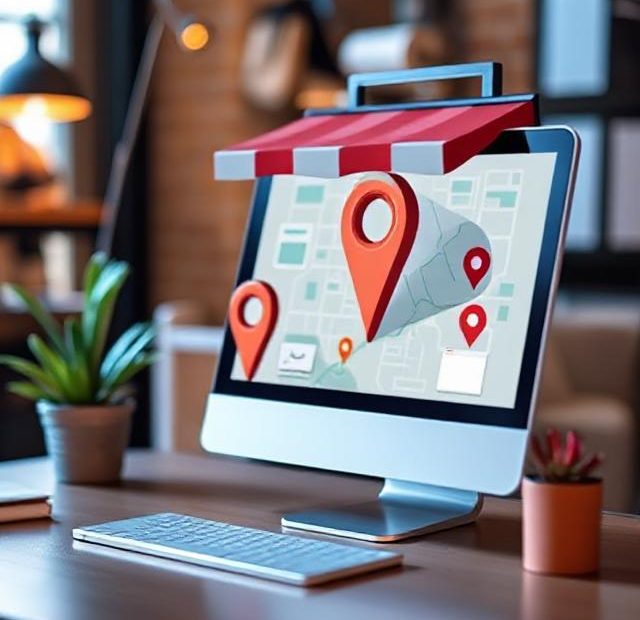In today’s competitive landscape, service-based businesses face a unique challenge. Unlike retail stores or restaurants, most don’t rely on walk-in customers. Instead, they serve clients at their homes, offices, or remotely. Whether you’re a plumber, electrician, consultant, landscaper, or therapist—your visibility online determines your success.
That’s where local SEO (Search Engine Optimization) comes in. It’s not just a buzzword—it’s a proven strategy that connects service-based businesses with local clients actively searching for what they offer. In this guide, we’ll break down how local SEO works specifically for service-based businesses, why it matters, and how to implement it effectively.
What Is Local SEO?
Local SEO is the process of optimizing your online presence so your business shows up in local search results, like:
-
“Plumber near me”
-
“AC repair in Houston”
-
“Best mobile dog groomer in Miami”
Unlike traditional SEO, which targets national or global keywords, local SEO focuses on your service area—helping you attract customers from your city, neighborhood, or surrounding towns.
Why Local SEO Matters for Service-Based Businesses
1. You Don’t Have a Physical Storefront (But You Still Need to Be Found)
Service-based businesses often operate out of home offices or serve clients at their locations. This means foot traffic is irrelevant—but online traffic is everything. Local SEO ensures your business appears in maps, directories, and search results even if customers never visit your location.
2. Your Customers Are Searching with Intent
When someone searches “roof repair near me,” they’re likely ready to hire. These high-intent local searches are goldmines for service providers. Without local SEO, you miss out on these ready-to-convert leads.
3. Your Competitors Are Already Doing It
If you’re not showing up in local search results, your competitors are. Local SEO is no longer optional—it’s a necessity to stay visible and competitive.
Key Local SEO Elements for Service-Based Businesses
1. Google Business Profile (GBP) Optimization
This is one of the most powerful local SEO tools. Even if you don’t have a physical storefront, you can still create a service-area business listing.
Tips:
-
Choose the correct business category (e.g., “Plumber,” “Mobile Pet Groomer”)
-
Define your service areas by zip codes or cities
-
Add services, business hours, photos, and a business description
-
Enable messaging and keep your information up to date
2. NAP Consistency (Name, Address, Phone)
Even without a storefront, your business must maintain consistent contact details across the web—on your website, Google, Yelp, Facebook, directories, etc. Inconsistencies hurt your credibility and rankings.
3. Local Keywords
Use keywords that combine your service with your location. For example:
-
“House cleaning services in Tampa”
-
“Emergency electrician Denver”
Integrate these into your:
-
Page titles
-
Meta descriptions
-
Headings
-
Website copy
-
Blog content
4. Service Area Pages
If you serve multiple cities or towns, create dedicated landing pages for each location. For example:
-
/plumbing-miami
-
/plumbing-ft-lauderdale
Each page should have unique, relevant content tailored to that area.
5. Online Reviews and Reputation Management
Positive reviews signal trust and improve your search rankings. Ask happy clients to leave reviews on:
-
Google
-
Yelp
-
Facebook
-
Angi or Houzz (industry-specific)
Respond to reviews—especially negative ones—with professionalism and empathy.
6. Local Citations and Directories
List your business in trusted online directories such as:
-
Yelp
-
BBB
-
Nextdoor
-
Yellow Pages
-
Local Chamber of Commerce
Make sure your business information matches your website and GBP exactly.
Advanced Local SEO Tips for Service Businesses
1. Leverage Structured Data (Schema Markup)
Adding schema to your website helps search engines understand your business better. You can tag:
-
Your services
-
Reviews
-
Location
-
Contact details
-
Service areas
This can help your listings appear more detailed and appealing in search results.
2. Use Location-Based Content Marketing
Create blog posts or videos that highlight local projects, tips, or events. For instance:
-
“How to prepare your roof for hurricane season in Orlando”
-
“Top landscaping trends in Scottsdale for 2025”
These posts help establish your authority and boost local relevance.
3. Mobile Optimization
Most local searches happen on smartphones. If your site isn’t mobile-friendly, potential clients will bounce quickly. Ensure:
-
Fast loading speeds
-
Click-to-call buttons
-
Easy navigation on small screens
Common Mistakes to Avoid
-
Using a fake address: This violates Google guidelines and can get your GBP suspended.
-
Keyword stuffing: Writing “Dallas plumber” 15 times on a page won’t help—it might hurt.
-
Neglecting reviews: Online reputation directly impacts conversions and rankings.
-
Ignoring updates: Keep your GBP, service pages, and directories updated with new info and services.
Measurable Benefits of Local SEO for Service Businesses
-
Increased local visibility
-
More inbound calls and quote requests
-
Higher conversion rates from high-intent leads
-
Improved online reputation
-
Competitive advantage in your market
Final Thoughts
Local SEO isn’t just for brick-and-mortar shops—it’s a powerful growth tool for service-based businesses. From mobile auto repair and pest control to tutoring and personal training, any business that serves a specific area can generate more leads, build trust, and grow revenue through local SEO.
By optimizing your online presence, creating locally relevant content, and managing your Google Business Profile, you’ll position yourself in front of the exact customers who need your services—right when they’re looking for you.
Want a free checklist for setting up your local SEO strategy? Just ask—I’ll create one for you.
Also, you can learn more about Local SEO here.
